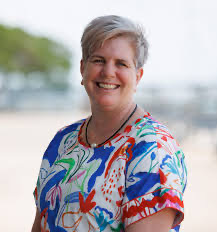$573m pledge for women's health
Angie White
17 March 2025, 1:40 AM
 Menopause treatments and contraceptives subsidised in $573m pledge
Menopause treatments and contraceptives subsidised in $573m pledgeAustralians will save hundreds of dollars after federal government announced a $573m package to deliver lower costs and better health care for women.
Rural doctors have welcomed the announcement that, which The comes after two parliamentary inquiries into menopause and reproductive health.
The funding includes assistance with:
- PBS listing for new oral contraceptive pills.
- More choice, lower costs and better access to long-term contraceptives, with larger Medicare payments and more bulk billing for IUDs and birth control.
- More Medicare support for women experiencing menopause - new Medicare rebate for menopause health assessments, training for health professionals, clinical guidelines and a national awareness campaign.
- PBS listing for new menopausal hormone therapies.
- More endometriosis and pelvic pain clinics treating more conditions.
- Contraceptives and treatment for uncomplicated UTIs directly from pharmacies.
Dr Sarah Chalmers, President Elect of the Rural Doctors Association of Australia (RDAA) said RDAA is pleased to see some progress and support for women’s health care, which should be a basic human right.
“Every person regardless of gender, should have access to the best and most appropriate care possible and gender equality in health is a goal that RDAA supports 100 percent,” said Dr Chalmers.
“In Australia health is a fundamental human right and every person is entitled to the highest attainable standard of health conducive to living in dignity.

Dr Sarah Chalmers, President Elect of the Rural Doctors Association of Australia (RDAA) – Image courtesy RDAA.
“This involves the elimination of discrimination, the safeguarding of reproduction, access to adequate health care facilities, family planning, and appropriate pregnancy, birthing and post-natal care,” said Dr Chalmers.
“It is time that women are recognised as having health issues separate to men,” said a western area resident. “So many women suffer in silence or simply just get on with it.
“It is hoped that this funding may go a good way in recognising and tackling everyday problems for women, particularly in rural areas where medical care is harder to come by.”

“That it has been 20 years since a new menopause therapy has been added to the PBS and 30 years for a new oral contraceptive to have been added, is frankly shocking,” said Dr Chalmers.
“This information alone proves how little women’s health management has been considered over the past three decades.
“We welcome more endometriosis and pelvic pain clinics, but to improve equity of access and extend this care to rural and remote patients further support for GP’s and nurse practitioners to upskill in these fields would be an excellent addition to the initiatives supporting women’s health,” said Dr Chalmers.



